Marie Cocco: What Lies Beneath
When the Democrats begin using the power of the subpoena to probe Bush administration malfeasance, will we have the fortitude (or inclination) to pay attention?WASHINGTON — Henry Waxman scares me.
Not for the same reason the Bush White House fears the watchdog from California, who now chairs the House Committee on Oversight and Government Reform. The administration is adding lawyers to fight — probably until the president leaves office — any and all requests for information it deems Congress and the American people have no right to know. They will try to thwart Waxman and any other congressional Democrat who seeks to penetrate the dark corners of an administration that has perfected the art of secrecy like none since the Nixon cabal.
I do not fear that Waxman will flinch from a full-scale White House assault. I tremble at what he might find — that even the smallest victories in his oversight will yield accounts of constitutional horrors yet unknown.
Everything we know thus far about this president’s abuse of power has come from the news media. Relying on sources who’ve risked their careers to reveal constitutional overstepping and contempt for domestic and international law, journalists have provided the only glimpses into the workings of this White House, during six years of willful blindness on the part of Republicans who controlled Capitol Hill.
The media exposed Abu Ghraib. It uncovered the existence of a global network of secret prisons and the U.S. practice of sweeping up people around the world, delivering them to countries known to practice torture. Journalists revealed that the president — despite a law requiring warrants to be granted by a special court in order to eavesdrop on Americans for intelligence purposes — has been snooping on international phone calls without this sanction. And they detailed Bush’s unprecedented use of “signing statements” that say the president can, in effect, ignore any portion of a new law with which he disagrees.
As it happens, the latest of these statements was appended just last month to a routine measure to revamp the Postal Service — an agency directly under Waxman’s purview. The White House claims in this signing statement that it can open first-class mail without a warrant, for emergencies and “foreign intelligence collection.” Administration lawyers say this merely restates current law. If that were true, there would of course be no need to attach such new and extraneous language. And thus far, the explanation has satisfied neither Waxman nor Sen. Susan Collins, R-Maine, who authored the postal measure in the Senate.
Collins determinedly points to the circumstances under which current law allows a warrantless search of mail: when there is “an immediate danger to life or limb or an immediate and substantial danger to property.” She has said, as well, that the signing statements in general “raise questions about the executive’s intention to comply with legislation approved by Congress and signed into law by the president.”
In the era of Republican congressional control, this dust-up might well be relegated to a back-and-forth in the media, soon buried beneath the crush of news from Iraq. Now we may well find out, through congressional hearings, that the president believes opening mail is his right as commander in chief of the armed forces, a power he asserts in claiming an unfettered right to monitor international phone calls.
Those who believe the American news media is too powerful misunderstand journalism’s constraints. Reporters cannot compel anyone to talk to them. In this era of prosecutorial probing, they cannot even make an ironclad promise of anonymity. They can’t force someone to hand over government documents, or to verify the authenticity of leaked papers. For every blockbuster story that exposes wrongdoing or controversy, there are hundreds of leads and rumors that can’t be confirmed, even with unflagging journalistic effort.
The power of a congressional committee to summon witnesses, to put them under oath and to seek documents, far surpasses the reach of a lowly reporter. It is entirely possible that even without a single subpoena, Congress will learn more about the Bush administration in the next six months than we have come to find out over the past six years. That isn’t an exercise in excessive partisanship. It is an urgent duty.
Waxman, for his part, says he’ll concentrate at first on suspected waste and fraud in dispensing billions in government contracts. But Congress also has an obligation to uncover the depth of this administration’s descent into what Vice President Dick Cheney, just after 9/11, called “the dark side” of the war on terror.
One danger is that lawmakers might uncover skullduggery of historic proportion. The other is that we’ll continue to avert our eyes.
Marie Cocco’s e-mail address is mariecocco(at symbol)washpost.com.
copyright 2007, Washington Post Writers Group
Your support matters…Independent journalism is under threat and overshadowed by heavily funded mainstream media.
You can help level the playing field. Become a member.
Your tax-deductible contribution keeps us digging beneath the headlines to give you thought-provoking, investigative reporting and analysis that unearths what's really happening- without compromise.
Give today to support our courageous, independent journalists.
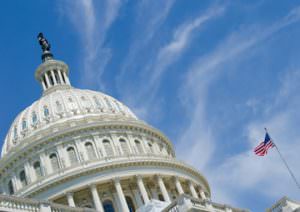
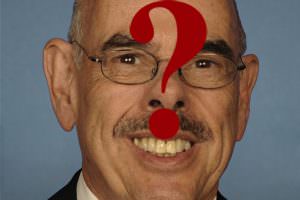

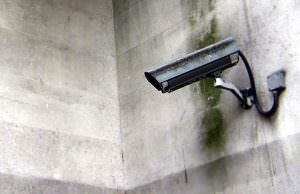
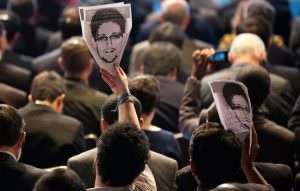
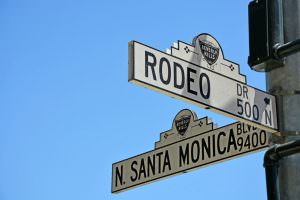
You need to be a supporter to comment.
There are currently no responses to this article.
Be the first to respond.